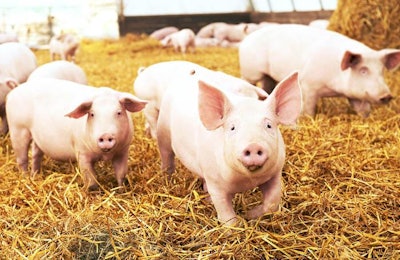
Agriculture and Agri-Food Minister Lawrence MacAulay’s trade mission to China is off to a strong start, with industry groups reaching a multitude of new deals in Shanghai and Guangzhou that will boost sales, grow exports to the world’s second-largest economy, and create new jobs in Canada.
These efforts will help Canada reach its goals of doubling bilateral trade with China and growing global agri-food exports to $75 billion by 2025. Shanghai and Guangzhou are key economic centers, presenting an opportunity for Canadian farmers and processors to increase sales of Canada’s high-quality food products.
The marquee event during MacAulay’s visit to Shanghai was Food and Hospitality China, the largest food trade show in China specifically targeting international food and beverage suppliers for the Chinese market. MacAulay received a tour of the Canada Pavilion, meeting many of the 82 Canadian exhibitors in attendance. In terms of sales, industry representatives reported some $10.3 million in on-site sales, and $42.7 million in anticipated sales over the next year.
MacAulay also witnessed important signing ceremonies between Canadian company Genesus and Chinese companies Aonong, TQLS, Wens and Wufang while in Guangzhou, worth an industry-estimated $7.2 million.
Wens released a statement this week saying they plan to expand by 27.5 million hogs in the next two years. They are already expanding fast through a contract partnership business model — Wens Foodstuff is recognized as the largest pork and broiler producer in China and placed No. 2 on the list of Global Mega producers. They currently have an estimated 1,000,000 sows and produced 17 million pigs last year (about 2.3 percent of national output).
While supermarkets remain the main distribution channels for packaged food in China, e-commerce sites are increasingly taking over, thanks to a growing middle class and more smartphone and internet users. Seizing on this trend while in Guangzhou, MacAulay met with vip.com, one of the country’s top-three developers of e-commerce platforms, and showcased the safe, high-quality Canadian food products available on Chinese e-commerce platforms.
MacAulay participated in cooking demonstrations for Chinese stakeholders organized by Canada Beef Inc., the Canola Council of Canada, and the Atlantic Canada Opportunities Agency (ACOA), with the latter project supported by the governments of Canada, Nova Scotia, New Brunswick, Prince Edward Island, and Newfoundland and Labrador as part of pan-Atlantic efforts to grow trade and investment opportunities for Atlantic businesses through the Atlantic Growth Strategy. In Shanghai, MacAulay also helped launch the promotion of “Canada Food Week” at well-known grocery retail chain CitySuper to highlight Canadian food products.
MacAulay’s trade delegation departed Saturday for Beijing, China’s capital, for multiple days of promotional events and bilateral meetings.
“China is a priority market for the Government of Canada, and the cities of Guangzhou and Shanghai are the financial and trading hubs of that growing market. By showcasing Canadian products, we are helping Canadian farmers and processors increase their agri-food exports. Achieving this goal will be a boost for Canadian farmers, our economy, and the middle class," said MacAulay.

















